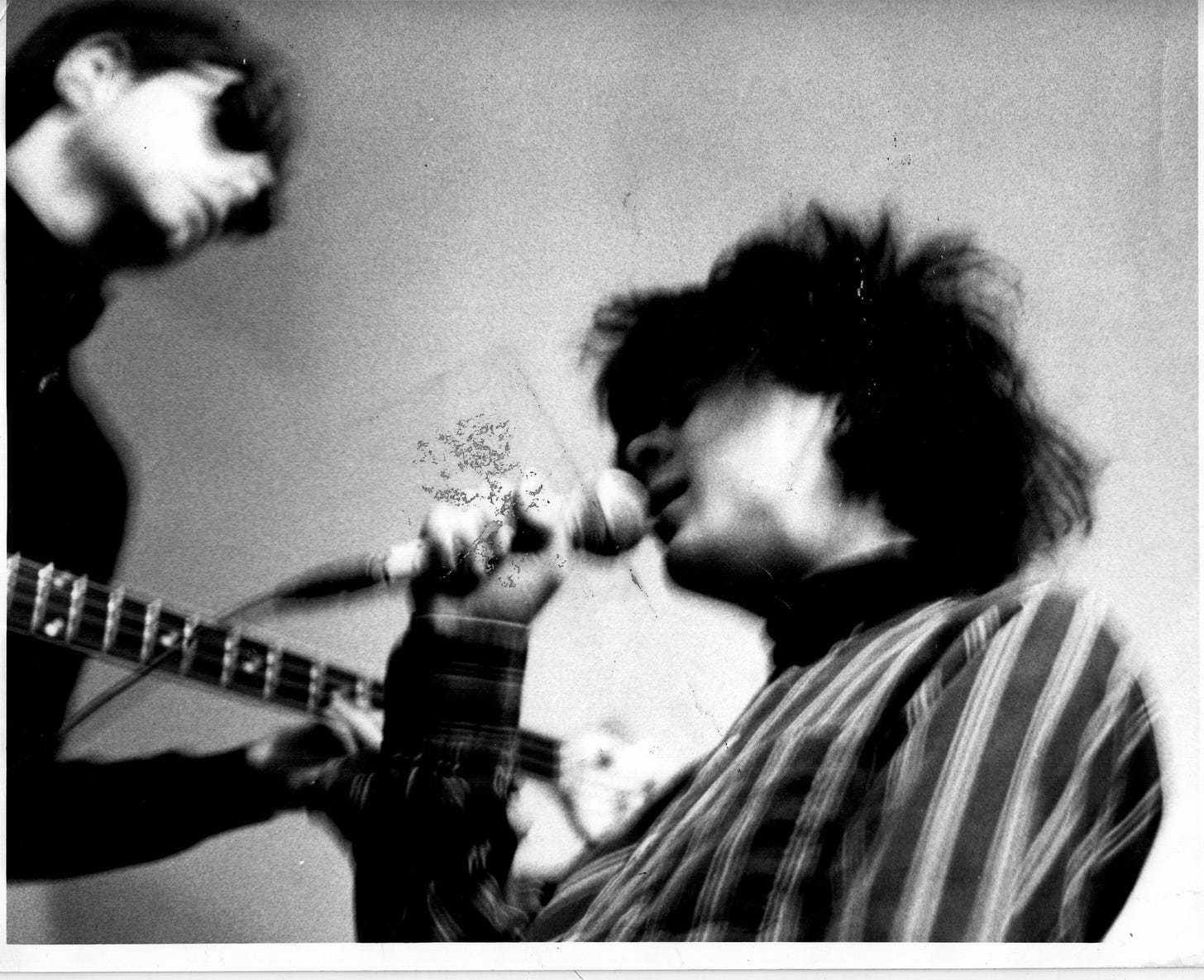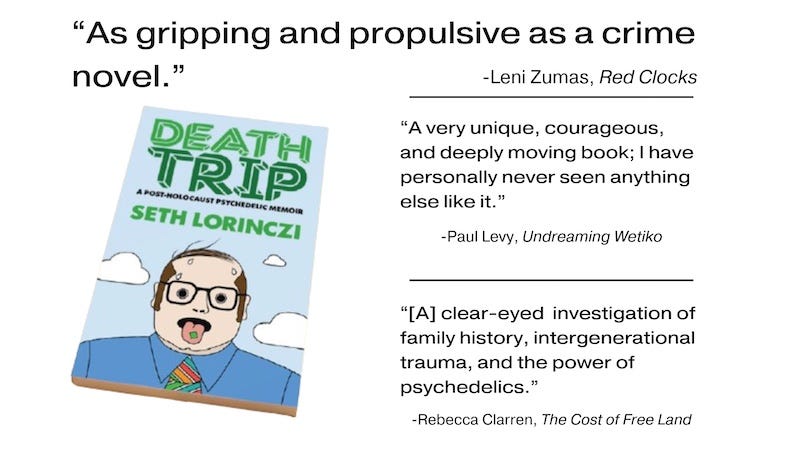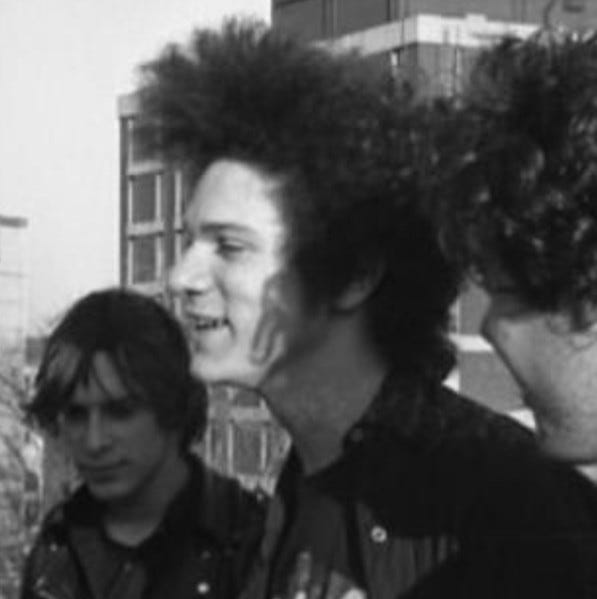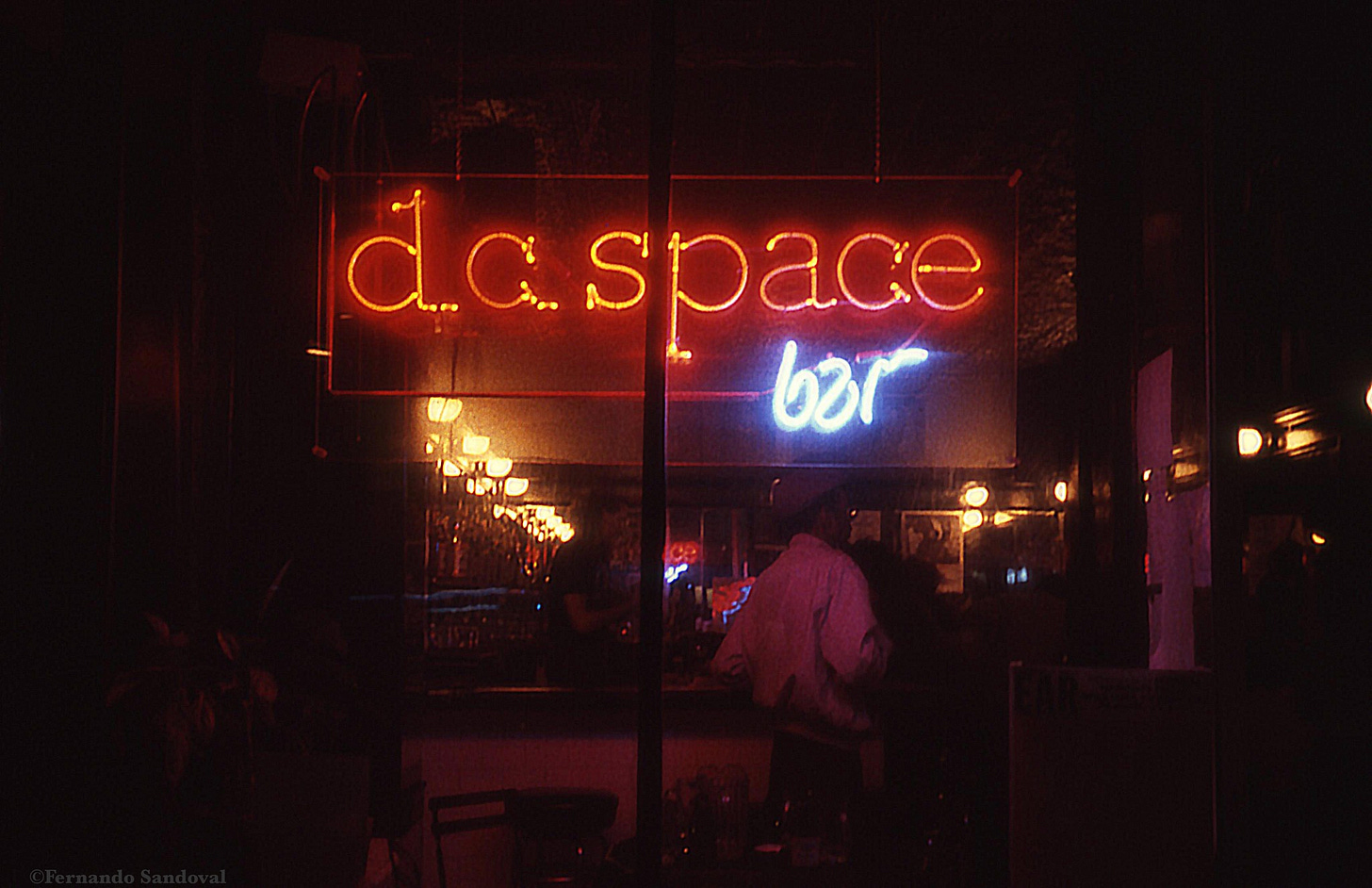Breaking Through
In 1987, when my high-school band played our first club date, I was desperate for an escape hatch. That night, I saw there might be a place for me in the world of downtown poets, artists, and punks.
It’s hard to describe just how different it was back then.
It was the mid-‘80s—the height of White Flight—and Downtown Washington, D.C. was a hollow shell. After the torrential rainstorms that broke like water balloons over your head, you could literally smell the decay wafting up from the abandoned buildings. The city was falling apart, but it was also our playground: Chinese takeouts; wig shops; pay phones; liquor stores that sold to anyone. And d.c. space.
d.c. space was a grotty little restaurant, bar, and performance room. It was where we first encountered the shadowy nighttime world that pulsed, unseen, all around us. And it was where we first got an inkling we might belong here too.
The “we” was my band, The Vile Cherubs. Except for Jesse, the singer—who’d just turned 17—we were all 16 years old, and we were trying our damnedest to pretend the ‘80s weren’t happening. Never mind the oleaginous synth-pop oozing from the radio, we worshipped sounds from 20 years before. Riding grimy city buses with the headphones of my Walkman jammed into my ears, The Byrds and Music Machine and The Who gave me hope. Hope that something better awaited me, though just what that might be I didn’t have a clue.
Up till now we’d been kicking, uncomfortably, around the high school dance circuit. Back in the era when dances still hosted live bands, you might actually chance upon some great music. One night I watched transfixed as a lanky-haired kid who didn’t look much older than me pounded away on his drum kit.
“He’s like 16 years old,” someone confirmed. “His name’s Dave Grohl.”
Dave’s band—Dain Bramage—wasn’t really a dance band, and neither were we. We took our inspiration from fuzzed-out ‘60s punk and obscuro art rock. Every time we’d play, a wide semicircle of kids would form around us. But they wouldn’t leave; they’d just stand motionless and watch us play. I wondered if we might actually have something on the ball.
When Jesse convinced an older guy he knew—someone named Geoff Turner—to come see us, something clicked into place. His own band, Gray Matter, had mined the same veins as us a few years before, though I didn’t know it at the time. All I knew was that Geoff had a 4-track, and that he was willing to help us record a demo.
Geoff’s “studio” was crude in the extreme—a dank one-car garage in Glover Park with mattresses propped against the walls—but he was exactly what we needed: Someone who understood what we were aiming for, cared enough to lend us his time, and steered us towards what we couldn’t yet see ourselves. Geoff became “The Fifth Cherub,” and he’s how we found ourselves at d.c. space in the first place. The demo he recorded got passed to Cynthia Connolly, the club’s booking agent. She heard something in it and gave us an opening slot.
The night of the show finally arrived—March 24, 1987. As we hustled our gear in through the back door, the afternoon drinking crowd was filtering out along with the last rays of sunlight streaming through the picture windows. In dribs and drabs, others came in to take their place at the ancient tiled bar: downtown art denizens, queer poets and dancers, performance artists, punks. No one paid us any mind.
Inside me, wheels were turning. I wanted very badly to belong here. Maybe I even saw, dimly, that I might. But right now, it didn’t seem promising. After our hurried soundcheck, my bandmates and I sidled up to the bar, where the bartender—one Ace Kilgore—shot us a sardonic smirk.
“So…what are you guys?” he asked, setting down four Cokes. “Like, some kind of Neo-Monkees?”
We stared down at our sodas. Was there a right answer? No one said a word.
“My favorite band just broke up,” he went on, “and I need a new one. Are you guys auditioning for the part?”
I felt my stomach churn. We hadn’t even played a note, and we were already toast.
Like nearly every performance before or since, our set raced by in a blur. But there’s one moment I’ll never forget: At the finale, as I smashed the guitar I’d made in wood shop into splinters and the last blasts of feedback screamed from our amps, I looked up to see Ace making his way through the crowd. Aping a sommelier at a Michelin-starred restaurant, he’d draped a bar rag over his arm; balanced on his wrist was a tray bearing four Cokes. He stepped up onto the stage.
“Nice work, Cherubs!” he said. “You got the job!”
Something happened that night, the end of one thing and the start of another. To this day, I don’t remember a single thing about our performance. I both left my body and entered it for the first time, a melding as impossible to describe as it is to replicate. There was just the buzzing all, the music kicked into overdrive by adrenaline and caffeine and something else: The glimpse of a world I was desperate to join but didn’t yet know how.
I saw, if only for a few fleeting moments, that I might make it, too.
Interested in more dispatches from the fringe? Consider becoming a paid subscriber! It’s a great way to support my work, help me to craft more great writing, and support independent creatives such as myself.







Thank you Seth! I like Dispatches or Views from the Edge.
Views from the edge is my vote